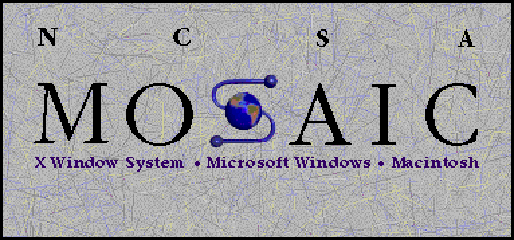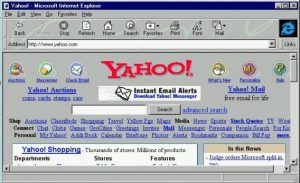

Web Browsers are basically applications used to navigate on the world wide web. Ultimately web browsers are the main gateway to accessing information! Even with a browser, you can only do as much as it’s equipped to handle. There are many browsers available, and some not known to the general public. Such browsers can perform specific functions that the average computer user would never find necessary. But browsers have been the gateway to websites and web development for small businesses and professionals. Whether it be a simple website, e-commerce presence, backend server-side scripting, or just social media, web browsers have become a daily part for many.
The first web browser was called the World Wide Web, and later the name was changed to Nexus. Created by Sir Tim Berners-Lee, it was released in 1990, and now gave people a basic way to view web pages. However, it was a long way from the immersive online experience we have today.
 1st Popular Graphical Browser – Mosaic – 1992
1st Popular Graphical Browser – Mosaic – 1992The first popular graphical browser, Mosaic, was released in 1992. It was easy to install and easy to use, as well as reliable and capable of displaying images in line with text, rather than in a separate window. Mosaic replaced the text prompt-based system used before and gave us the browser bar, back and forward buttons, and graphics interactivity. Since then, though, technology has built on Mosaic’s foundation to create some truly awe-inspiring capability in our modern browsers.
 There was a time when Microsoft’s Internet Explorer ruled the world. This doesn’t mean everyone liked it, but Microsoft’s firm commitment to the web browser meant it made its way onto most computers. Microsoft was at the forefront of the internet revolution with the launch of Internet Explorer in 1995, allowing users to surf the rudimentary world wide web. Between 2002 and 2003, around 95 percent of web users used it as their primary means to access web pages as more of the world gained internet access.
There was a time when Microsoft’s Internet Explorer ruled the world. This doesn’t mean everyone liked it, but Microsoft’s firm commitment to the web browser meant it made its way onto most computers. Microsoft was at the forefront of the internet revolution with the launch of Internet Explorer in 1995, allowing users to surf the rudimentary world wide web. Between 2002 and 2003, around 95 percent of web users used it as their primary means to access web pages as more of the world gained internet access.
In recent years Internet Explorer has struggled to compete with faster rivals Mozilla’s Firefox and Google’s Chrome. They launched in 2004 and 2008 respectively, as internet users increasingly began using operating systems which did not support Internet Explorer. Along with the increase in browser rivals, the introduction of internet browsing on Android and iOS smartphones lead to even more rivalries. Microsoft was slow to adapt to the smartphone audience and began to lose the once loyal customers it had obtained at the beginning of the internet revolution.
Learn more at : https://visualwebz.com/web-browsers/